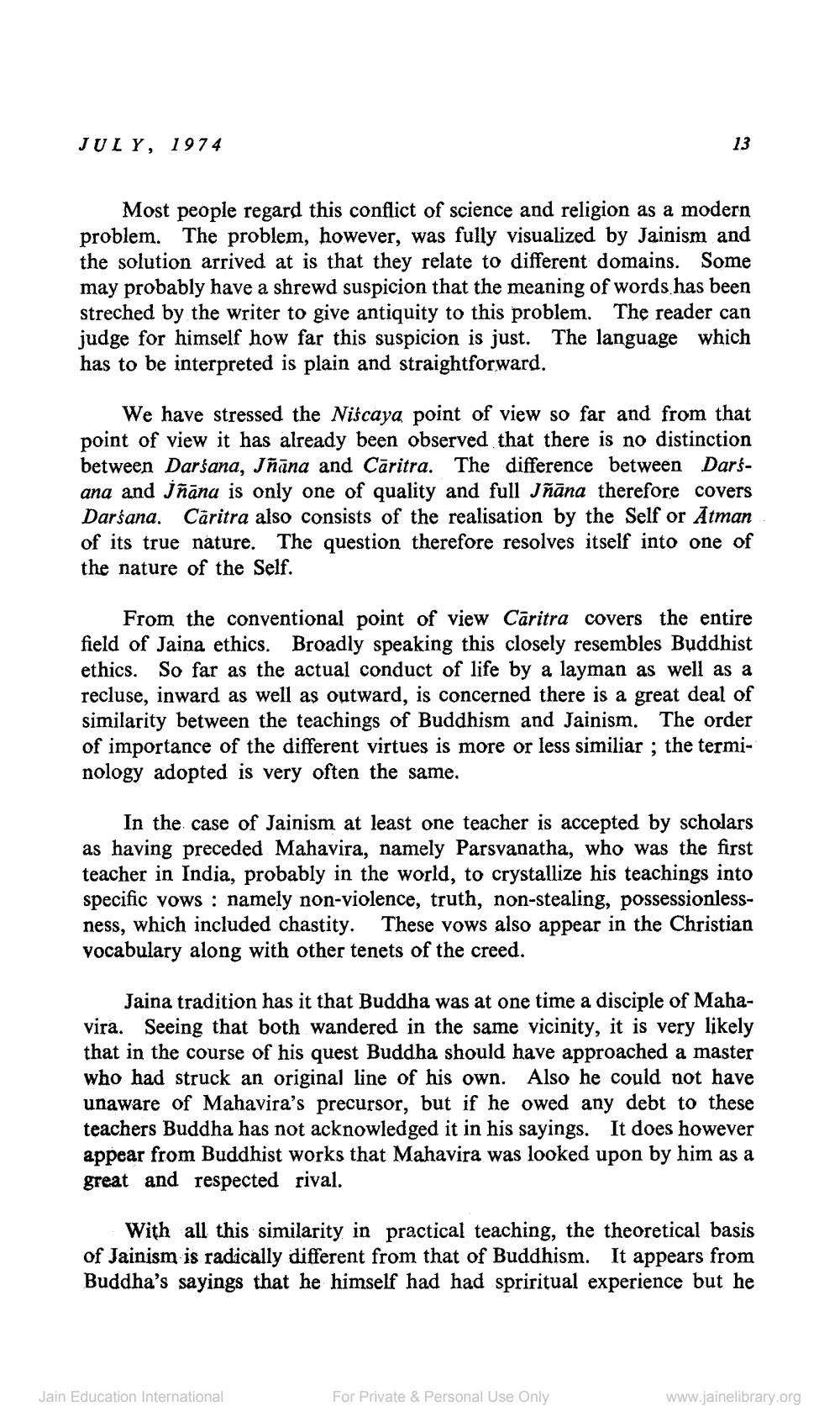________________
JULY, 1974
Most people regard this conflict of science and religion as a modern problem. The problem, however, was fully visualized by Jainism and the solution arrived at is that they relate to different domains. Some may probably have a shrewd suspicion that the meaning of words has been streched by the writer to give antiquity to this problem. The reader can judge for himself how far this suspicion is just. The language which has to be interpreted is plain and straightforward.
13
We have stressed the Niścaya point of view so far and from that point of view it has already been observed that there is no distinction between Darsana, Jñāna and Caritra. The difference between Darsana and jñāna is only one of quality and full Jñana therefore covers Darsana. Caritra also consists of the realisation by the Self or Atman of its true nature. The question therefore resolves itself into one of the nature of the Self.
From the conventional point of view Caritra covers the entire field of Jaina ethics. Broadly speaking this closely resembles Buddhist ethics. So far as the actual conduct of life by a layman as well as a recluse, inward as well as outward, is concerned there is a great deal of similarity between the teachings of Buddhism and Jainism. The order of importance of the different virtues is more or less similiar; the terminology adopted is very often the same.
In the case of Jainism at least one teacher is accepted by scholars as having preceded Mahavira, namely Parsvanatha, who was the first teacher in India, probably in the world, to crystallize his teachings into specific vows namely non-violence, truth, non-stealing, possessionlessness, which included chastity. These vows also appear in the Christian vocabulary along with other tenets of the creed.
Jaina tradition has it that Buddha was at one time a disciple of Mahavira. Seeing that both wandered in the same vicinity, it is very likely that in the course of his quest Buddha should have approached a master who had struck an original line of his own. Also he could not have unaware of Mahavira's precursor, but if he owed any debt to these teachers Buddha has not acknowledged it in his sayings. It does however appear from Buddhist works that Mahavira was looked upon by him as a great and respected rival.
With all this similarity in practical teaching, the theoretical basis of Jainism is radically different from that of Buddhism. It appears from Buddha's sayings that he himself had had spriritual experience but he
Jain Education International
For Private & Personal Use Only
www.jainelibrary.org




